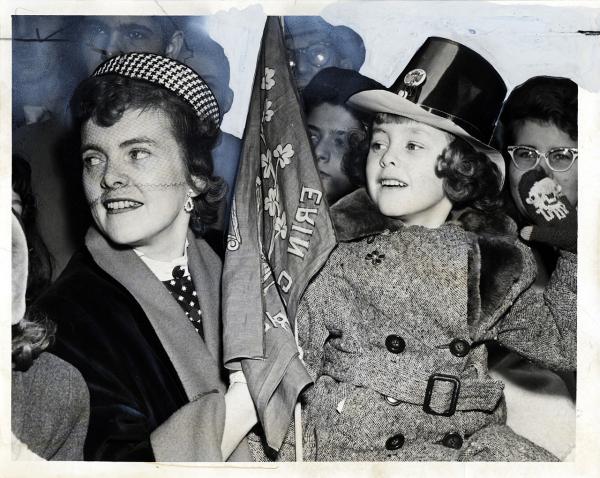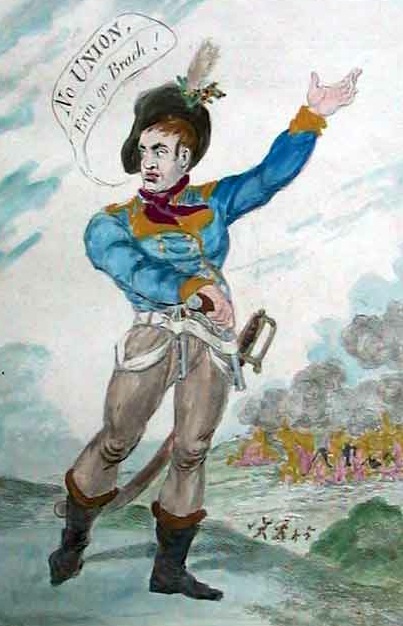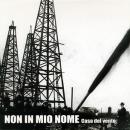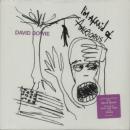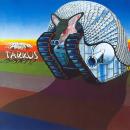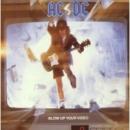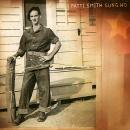Risotto Militare
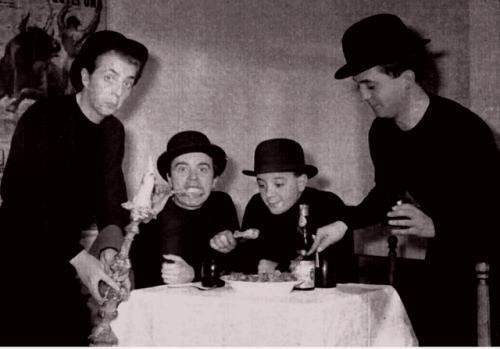
Chanson italienne - Risotto Militare - I Gufi – 1969
Un pot-pourri de chansons anti-militaristes tiré de "Non spingete scappiamo anche noi" (1969),(POUSSEZ PAS, ON FOUT LE CAMP COMME VOUS). Ce spectacle est un voyage ironique, sarcastique au cours des siècles à la recherche des mythes patriotiques et militaires
Un pot-pourri de chansons anti-militaristes tiré de "Non spingete scappiamo anche noi" (1969),(POUSSEZ PAS, ON FOUT LE CAMP COMME VOUS). Ce spectacle est un voyage ironique, sarcastique au cours des siècles à la recherche des mythes patriotiques et militaires
RISOTTO MILITAIRE
(Continues)
(Continues)
Contributed by m 2016/8/28 - 10:28
San Martino del Carso
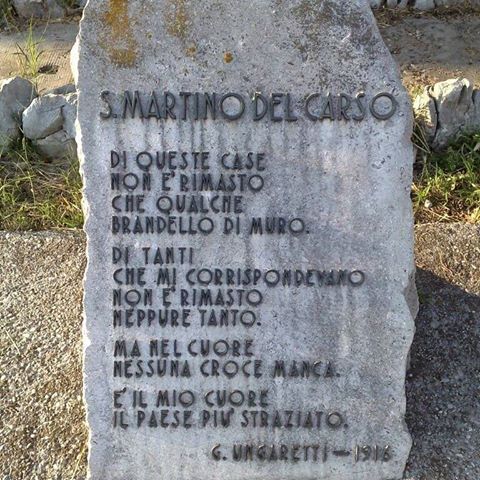
Ungaretti scrisse questa celebre poesia esattamente100 anni fa, il 27 agosto 1916.
2016/8/28 - 00:33
Piazza Fratelli Bandiera
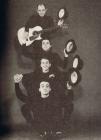
Condivido in pieno il giudizio. Aggiungo che Nanni Svampa ha realizzato una versione da solista, altrettanto bella.
Andrea
Andrea
Andrea Salvarani 2016/8/27 - 22:19
La vie s'écoule, la vie s'enfuit

Interpretazione di Daniel(e) Bellucci
Daniel(e) Bellucci -Nizza - 27082016 (m'han squarciato ieri) 2016/8/27 - 21:15
A Different Kind of Love Song
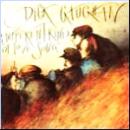
Alle nostre composizioni originali abbiamo aggiunto “Sesto San Giovanni” dei Gang, che riteniamo la più bella working song scritta in Italia, e “Un altro tipo di canzone d’amore” del cantautore scozzese Dick Gaughan, che spiega perché parliamo di certi temi.
Intervista a Il Mucchio
Intervista a Il Mucchio
UN ALTRO TIPO DI CANZONE D'AMORE
(Continues)
(Continues)
Contributed by DQ82 2016/8/27 - 14:13
Almost Cut My Hair

Concordo con "in my way" tradotto con "intralciare", ma può anche voler dire "ci stava" (per indicare qualcosa che avrebbe potuto fare senza problemi).
Il "sento di doverlo a qualcuno" è riferito al richiamo di leva per il Vietnam. Ciascuno aveva un numero e i numeri di chi era chiamato a partire per la guerra erano chiamati a caso.
Insomma, Crosby non è costretto a tagliarsi i capelli, benchè un pò -così lunghi- gli diano fastidio, perchè è stato fortunato a non essere stato chiamato, e non se li taglia per rispetto di coloro che invece sono stati meno fortunati e sono stati richiamati per andare in Vietnam (oltre che per protesta, ovviamente).
Ciao a tutti! :)
La mia traduzione:
Il "sento di doverlo a qualcuno" è riferito al richiamo di leva per il Vietnam. Ciascuno aveva un numero e i numeri di chi era chiamato a partire per la guerra erano chiamati a caso.
Insomma, Crosby non è costretto a tagliarsi i capelli, benchè un pò -così lunghi- gli diano fastidio, perchè è stato fortunato a non essere stato chiamato, e non se li taglia per rispetto di coloro che invece sono stati meno fortunati e sono stati richiamati per andare in Vietnam (oltre che per protesta, ovviamente).
Ciao a tutti! :)
La mia traduzione:
MI ERO QUASI TAGLIATO I CAPELLI
(Continues)
(Continues)
Contributed by Il Lorenzaccio 2016/8/27 - 13:54
Heut singen wir ein neues Lied (Lied der Alten)
Anonymous

La fonte originale citata è il volume “Lieder aus den faschistischen Konzentrationslagern” (Hofmeister, Leipzig 1962) curato dalla celebre ricercatrice musicale, ebrea tedesca, Inge Lammel (1924-2015), coadiuvata nel lavoro da Günter Hofmeyer.
L’auteur du texte de ce chant était probablement un Berlinois, qui a écrit les strophes fin 1941. Il fut initialement composé comme poème. La mise en musique était moins connue.
Le chant a été rejeté par beaucoup de prisonniers, parce qu’ils ressentaient la dernière strophe comme une raillerie des nouveaux arrivants et parce que la référence aux « anciens » ne correspondait pas à leur intention. Le chant fut chanté à plus d’un ancien pour son anniversaire. (op. cit. p. 59)
Le chant a été rejeté par beaucoup de prisonniers, parce qu’ils ressentaient la dernière strophe comme une raillerie des nouveaux arrivants et parce que la référence aux « anciens » ne correspondait pas à leur intention. Le chant fut chanté à plus d’un ancien pour son anniversaire. (op. cit. p. 59)
NOUS ENTONNONS UN NOUVEAU CHANT
(Continues)
(Continues)
Contributed by Bernart Bartleby 2016/8/26 - 13:48
Graue Kolonnen

La fonte originale citata è il volume “Lieder aus den faschistischen Konzentrationslagern” (Hofmeister, Leipzig 1962) curato dalla celebre ricercatrice musicale, ebrea tedesca, Inge Lammel (1924-2015), coadiuvata nel lavoro da Günter Hofmeyer.
Ce chant des marais fut aussi chanté dans d’autres camps. Sur la mélodie appréciée des Wandervögel, les soldats des marais avaient placé leurs paroles et la dernière phrase „Uns geht die Sonne nicht unter –Notre soleil ne se couche pas“ comme signe de leurs espoir de victoire. (op. cit. p. 32)
GRISES COLONNES VONT AU MARAIS
(Continues)
(Continues)
Contributed by Bernart Bartleby 2016/8/26 - 13:36
Lied von Sachsenburg
Anonymous

BÂTIE DE BÉTON ET D’ACIER (HYMNE DE SACHSENBURG)
(Continues)
(Continues)
Contributed by Bernart Bartleby 2016/8/26 - 09:10
Fern verbannt nach Emslands Norden

La fonte originale citata è il volume “Lieder aus den faschistischen Konzentrationslagern” (Hofmeister, Leipzig 1962) curato dalla celebre ricercatrice musicale, ebrea tedesca, Inge Lammel (1924-2015), coadiuvata nel lavoro da Günter Hofmeyer.
Le texte a été écrit par le camarade Kaufmann, de Lüdenscheid, qui à cette époque était interné dans le camp du Moorlager V, Neu-Sustrum. Le chant qui rencontra vite le succès, fut, selon que le camp était gardé par des unités de la police, des SS ou SA, chanté ouvertement ou en secret. (Notice du livre, op. cit.)
LOIN, BANNI DANS L’EMSLAND MORNE
(Continues)
(Continues)
Contributed by Bernart Bartleby 2016/8/25 - 09:36
Ein jeder von uns sechsen (oder Die Jauchkolonne)

A SIX À CETTE TÂCHE (LA MERDIQUE COLONNE)
(Continues)
(Continues)
Contributed by Bernart Bartleby 2016/8/25 - 09:26
Konzentrationäre (Neuengammer Lagerlied)

La fonte originale citata è il volume “Lieder aus den faschistischen Konzentrationslagern” (Hofmeister, Leipzig 1962) curato dalla celebre ricercatrice musicale, ebrea tedesca, Inge Lammel (1924-2015), coadiuvata nel lavoro da Günter Hofmeyer.
Ce chant, qui décrit la situation du KZ de Neuengamme près de Hambourg, est né en 1943/44, lorsque la quarantaine y fut imposée, suite à une épidémie de typhus. Le chant devait sur ordre du commandant être chanté par tous les prisonniers et devint bien entendu bientôt populaire. Il résonnait pendant la marche vers le travail, et au départ du camp, en novembre 1944, de prisonniers incorporés de force dans la formation SS « Dirlewanger »
Les 2 noms cités dans le texte, « Klinker –brique vernissée » et « Elb’ – Elbe », le fleuve qui passe là, étaient des kommandos de travail. Le kommando de travail « Elbe » et une briqueterie construite par les prisonniers. Le 5e verset fait allusion à l’appel du matin, quand les noms des camarades qui devaient être libérés étaient criés. (cité de l’op. cit. , page 113)
Les 2 noms cités dans le texte, « Klinker –brique vernissée » et « Elb’ – Elbe », le fleuve qui passe là, étaient des kommandos de travail. Le kommando de travail « Elbe » et une briqueterie construite par les prisonniers. Le 5e verset fait allusion à l’appel du matin, quand les noms des camarades qui devaient être libérés étaient criés. (cité de l’op. cit. , page 113)
PRÈS DE HAMBOURG, DANS LA LANDE
(Continues)
(Continues)
Contributed by Bernart Bartleby 2016/8/25 - 08:57
Kartoffelschällied

LE SOIR APRES LA BOUFFE
(Continues)
(Continues)
Contributed by Bernart Bartleby 2016/8/24 - 21:39
?װער קלאַפּט עס
Anonymous

Il brano originale tratto da Mlotek, E. & J. Songs of Generations, p.21
Ver klapt dos azoy shpet bay nakht?
(Continues)
(Continues)
Contributed by Dq82 2016/8/24 - 11:40
Heil, Sachsenhausen!

BIN ICH EIN HALBWILDER SCHEIßPOLE! (oder HEIL SACHSENHAUSEN)
(Continues)
(Continues)
Contributed by Bernart Bartleby 2016/8/24 - 09:27
Alles fügt sich und erfüllt sich

ĈIO REGULIĜAS
(Continues)
(Continues)
Contributed by Bernart Bartleby 2016/8/24 - 08:54
Józef Wittlin: Żydom w Polsce

23/24 agosto 2016 01:36
AGLI EBREI DI POLONIA
(Continues)
(Continues)
2016/8/24 - 01:22
×
![]()

